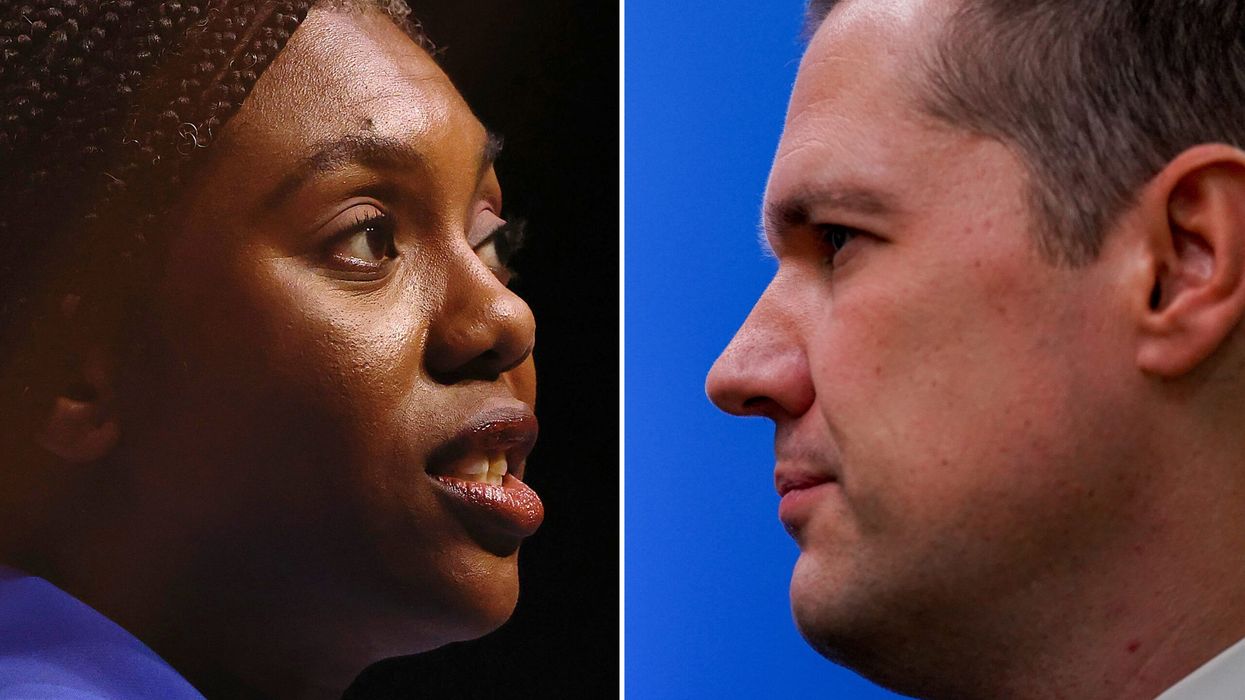A RESET moment was declared in Downing Street – though not of the Labour government itself.
That may be chancellor Rachel Reeves’ challenge in her first budget next week.
“To fix the foundations of our country, we need a fundamental reset of the relationship between government and civil society,” prime minister Sir Keir Starmer told a gathering of charity leaders.
A new Civil Society Covenant will set out principles for partnership on shared goals such as tackling disadvantage, driving cohesion and engaging more people with policymakers. Many of those present saw a constructive opportunity to move on from a fractious and polarised period, though how far a shift in tone makes a practical difference remains to be seen.
Asked “is it time to end the culture wars?” elsewhere that same evening, Conservative leadership candidate Kemi Badenoch pushed back.
“When people use the phrase, it is a dog whistle to attack the right. We are defending our culture, we are defending our country,” Badenoch told a GB News leadership debate.
Tory leadership candidates Robert Jenrick and Badenoch had an hour each with a studio audience, but did not debate each other direct. This will be the first party leadership election with no headto-head televised debate between the candidates.
BBC political editor Chris Mason confirmed that Badenoch turned down the Question Time invitation which Jenrick had accepted.
That illustrates how both campaigns share the perception that Badenoch is the frontrunner again. Around three-quarters of the GB News audience of party members backed her in a show of hands at the end. The London studio audience may not have been representative of the party membership overall, but the bookmakers shifted the odds further towards Badenoch, now giving her a 75 per cent chance of victory.
Jenrick will hope this topsy-turvy race will have one final twist in the tail. The selection could turn on small margins with party membership falling. The party does not publish the figures – but the campaigns estimate that around 115,000 ballots may have been sent out, a third fewer than two years ago. With under 100,000 votes likely to be returned, 50,000 votes should prove more than enough to win the leadership. Expect the winner to have fewer votes than the 60,000 that Rishi Sunak received in defeat last time.
Badenoch’s risk-averse tactic to duck a TV debate has a cost, too. This leadership contest has largely passed the general public by. An Opinium poll of the general public found Jenrick on 14 per cent and Badenoch on 13 per cent. ‘Neither’ and ‘don’t know’ were well ahead.
The GB News audience peaked at 145,000 viewers – a decent reach for a news channel – but many more would have seen a BBC debate.
This campaign may rather fizzle out before the result is announced next Saturday (2), squeezed between the UK budget (next Wednesday, 30) and the US election just a few days later.
Jenrick’s pitch on GB News was focused almost exclusively on immigration and his pledge to leave the European Convention on Human Rights as a top priority. It was necessary to “deliver on migration to get a hearing for the rest of the change we need,” he said.
Sunder Katwala (centre) at the Downing Street reception with Enver Solomon (right) of the Refugee Council and the Scottish Refugee Council’s Sabir ZazaiBut the Conservatives, now in opposition, can deliver only words, not action. Jenrick has said one root cause of broken promises after 2010 was that politicians “knew full well they could not keep their promises”, such as reductions in net migration that were out of their control while part of the EU. His language on the campaign trail – no visas to be issued if net migration is more than 100,000, and the ambition to remove every person here without legal status – has repeated the cycle of impossible promises.
Despite broadly similar politics, the rival candidates have had distinct strategies in this contest. Jenrick has focused on his policy pledges for a future government; Badenoch on the voice and values she would bring to leading the opposition, avoiding policy details.
She has spoken about a vision of a colourblind society, but the recent Daily Telegraph headline on an interview with Badenoch saying “I’m Labour’s worst nightmare – they can’t paint me as prejudiced” found a distinctly colour-conscious way of making that argument.
Whoever leads the opposition, Labour’s challenge is whether they will remain mostly reactive to the right’s agenda-setting on immigration, identity and integration – or whether a new government can compete with the opposition to reframe these issues itself.
If Jenrick or Badenoch next declare multiculturalism to have been a failed experiment, would the new government’s instinct be to defend multiculturalism, to critique it, or to propose a different language of their own?
Starmer’s ministers have so far been clearest about how they do not want to talk about identity – lowering the volume and reducing the temperature. An ambition to reset the conversation would mean the Labour government also now finding a more confident voice and narrative of its own.
(The author is the director of British Future think tank)




